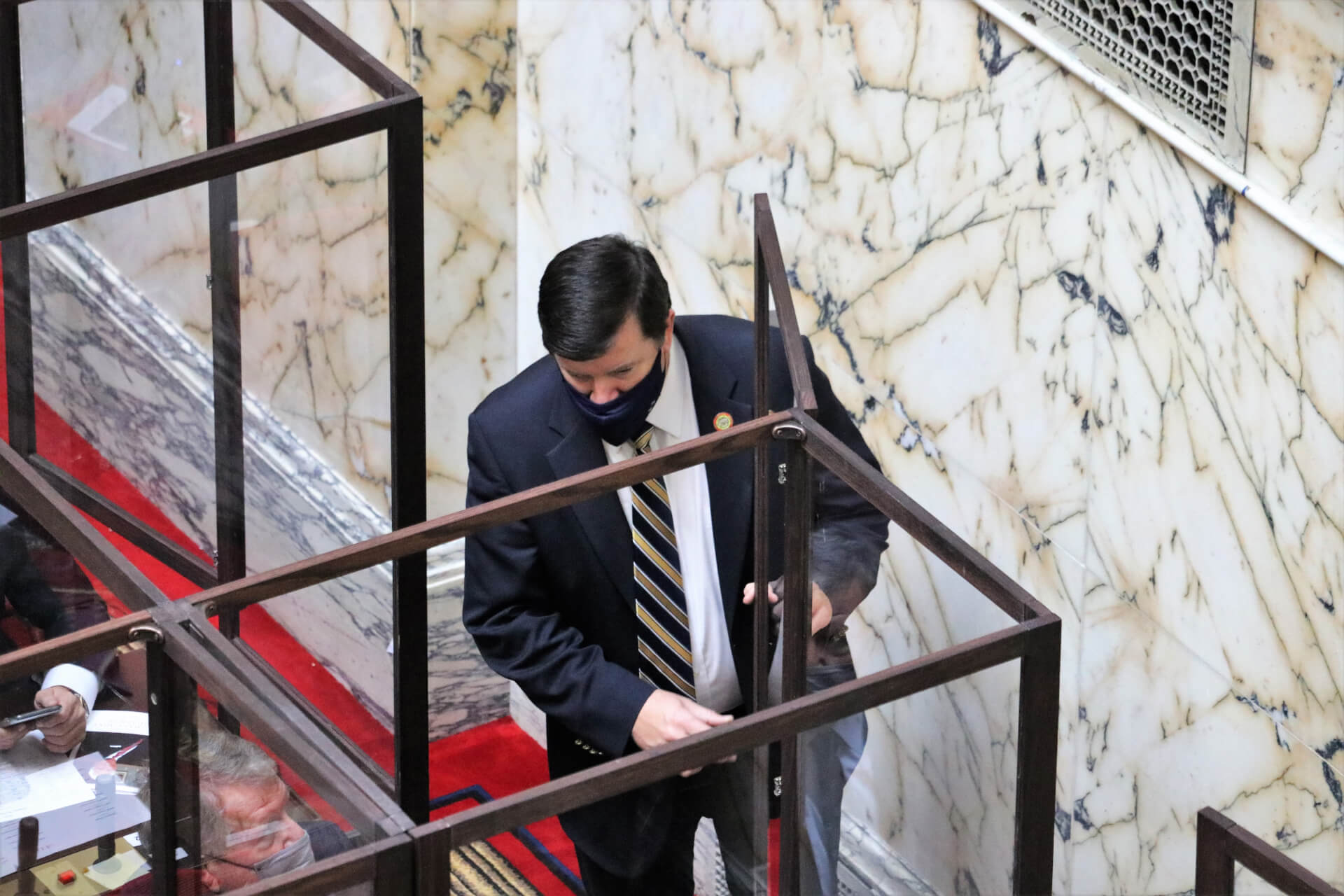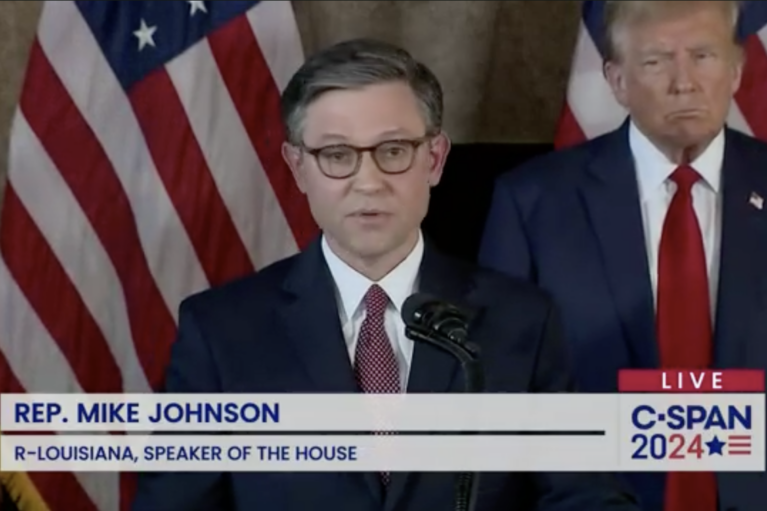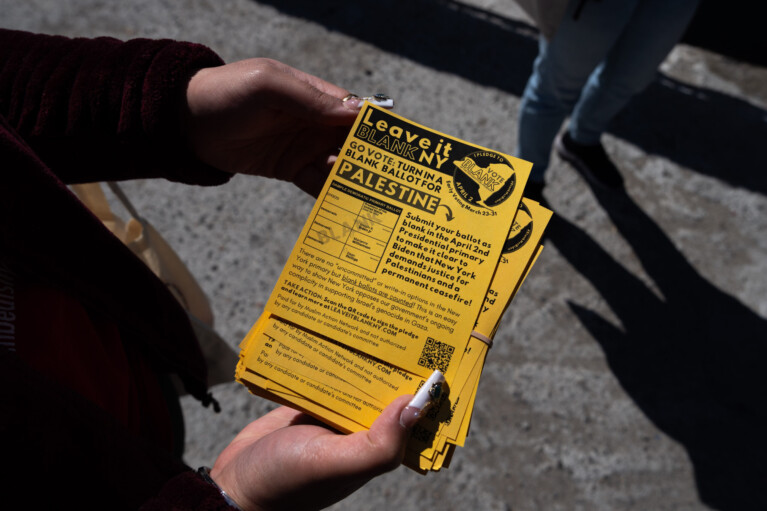Opinion: What My Elected Representatives Didn’t Say About the Election

Shortly before Christmas, after President Trump absurdly declared that it was “statistically impossible” that he lost the 2020 election and exhorted his supporters to join a “wild” protest in Washington, D.C., on the day when Congress was scheduled to certify the Electoral College vote, I sent an email to state Sen. Bryan Simonaire and Del. Nic Kipke, my representatives in the Maryland legislature and also the Republican leaders in their respective chambers, and to my Anne Arundel County councilmember, Nathan Volke, also a Republican. It said, in part:
“The people Trump was talking to unmistakably include many people in your districts who voted for you. Do you not feel any responsibility to tell those constituents that the president is lying to them? Do you not have any obligation to tell them not to go to Washington to demonstrate, and possibly contribute to civil disorder, to support a lie?”
I have hardly ever thought of my writing as prophetic. But that’s the word that came to mind when I remembered that email 16 days later, when a mob of supporters who had answered Trump’s call stormed into the U.S. Capitol in a violent effort to disrupt congressional certification of the Electoral College vote count.
Neither Simonaire nor Kipke nor Volke answered that message. More importantly, to my knowledge, none of them issued any public statement before Jan. 6 countering Trump’s false narrative of a stolen election. Nor did they speak out afterward. I am not aware that any of them ever endorsed Trump’s claim, before the Capitol break-in or after. But they haven’t challenged it, either. More than a week after Joe Biden’s inauguration, as far as I can determine, they have still not broken their silence.
In that respect, these three Marylanders represent a much bigger story: the massive failure of elected Republicans across the country to speak out on Trump’s falsehoods. A great many of them must have known that the president was lying, but would not say so in public. Instead they let those high-volume lies reach their voters without any competing narrative from others they might listen to.
That silence has aided and abetted lasting damage to the bedrock democratic tradition that after an election, winners and losers together respect the voters’ choice. When that doesn’t happen, as I know first-hand from many years of living and working overseas and witnessing elections in many countries, democracy is an empty word.
My correspondence with Simonaire, Kipke and Volke is a striking case study of the depressing response from Republicans nationwide. It began in mid-November, when I sent emails to Simonaire and Kipke and separately to Volke, urging them to follow Gov. Larry Hogan’s example and acknowledge that Joe Biden had legitimately won the presidential vote.
Some days later, I wrote Kipke and Simonaire again, asking if they truly had any doubt about Biden’s win, and if so, what grounds did they have for that belief. This time both responded, but without answering the question. Kipke wrote: “I’m not in a position to know the truth and neither are you.” Simonaire said, “There are a myriad of opinions on this topic at the federal level and I am focusing on state issues.”
In another email the following day, Kipke added, “I think it is highly unlikely at this point that Trump’s lawyers will change the outcome of the election. It would require evidence of huge and breathtaking levels of voter fraud. That is possible I assume but at this point I’ve not seen hard evidence, only allegations.”
That was as close as any of the three ever came to stating a view on Trump’s claim that the election was stolen from him. But as far as I can determine, he did not state that opinion in any public forum, then or later.
Councilman Volke’s first email said, “As the County Council does not have any role in certifying the election results (local, state or federal), I have not commented on election-related issues publicly.” In a later message, he added, “To the extent that people choose not to accept the election results, or harbor feelings that someone should not be the President, I do not see how my statement, as the County Councilman for District 3 in Anne Arundel County, will do anything to change that.”
In subsequent messages over the next several weeks, as recounts and audits confirmed the official results in state after state and numerous lawsuits unanimously failed to show any proof of fraud, all three lawmakers repeatedly avoided stating any opinion about the president’s claim that the election was fraudulent. Nor did any of them cite a single fact that they saw as possible grounds for continued doubt.
On Dec. 9, a week after Trump’s own attorney general declared there was “no evidence” that fraud changed the election result, Kipke emailed, “Could there have been election fraud? Sure. You and I don’t know if it happened.” In later messages, he added, “I’m not paying as close attention to all of this as you…. I’m not following it closely and do not think I have to. It’s stressful and I am up to my ears with other things that I can do something about.”
Around the same time, Simonaire wrote, “I believe we should wait until all the facts are presented in the cases, are heard and decided upon before we make any final conclusions. No one, including you and me, have all the facts…. I plan to wait until the process is complete and all the available facts are known.”
The last message I received from any of the three came from Volke on Dec. 16, shortly after the official Electoral College vote. This time he agreed that Joe Biden has been elected as “the next President of the United States of America” and that “the electoral process worked as designed.” However he still avoided mentioning fraud or saying explicitly if he believed Biden was the true winner. As far as I can determine he did not make any similar statement in any public context.
Five days later I sent the message quoted at the beginning of this essay, but received no reply. Then Jan. 6 happened.
I don’t know specifically if anyone from Simonaire’s or Kipke’s or Volke’s districts answered Trump’s summons to Washington, or were among those who illegally broke into the Capitol building to try to stop Congress from affirming the Electoral College vote. If any did, which is certainly not unlikely, there is no way to know whether some of them might have stayed home if their elected representatives had been telling them the truth about the presidential election in the preceding weeks.
On a broader scale, though, it is impossible not to conclude that if more than a shamefully small minority of elected Republican officials across the country had spoken out instead of letting Trump’s lies spread uncontested, the Jan. 6 events would have been less virulent.
In my never-answered Dec. 21 email, I reminded Simonaire, Kipke and Volke of the Watergate-era cliche that “the coverup is worse than the crime.” That axiom, I wrote, “surely applies in this case. President Trump’s actions since losing the election may not be literally a crime (I will leave it to him to throw the word ‘criminal’ at people who oppose his politics or criticize his conduct) but they are monumentally dishonest and wrong. Remaining silent has not just covered up that wrong but made it vastly more harmful than it could have been.”
I did not vote for Senator Simonaire or Delegate Kipke or Councilman Volke when they last ran for office. But they got more votes than their opponents, and it never entered my mind to think that they did not legitimately assume the offices they hold. Legally, that is still true. But their failure in these troubled times to stand up for truth and fundamental democratic principles poses a different question, whether they have moral legitimacy as my elected representatives.
I know how I would answer that question. I wonder, when they look in the mirror, what their answers would be.
— ARNOLD R. ISAACS
The writer, an Anne Arundel County resident, is a former reporter, national and foreign correspondent, and editor for The Sun.




 Creative Commons Attribution
Creative Commons Attribution